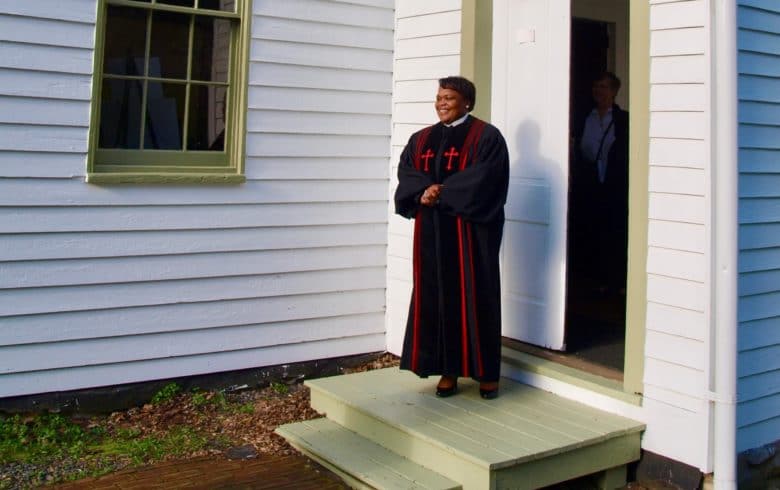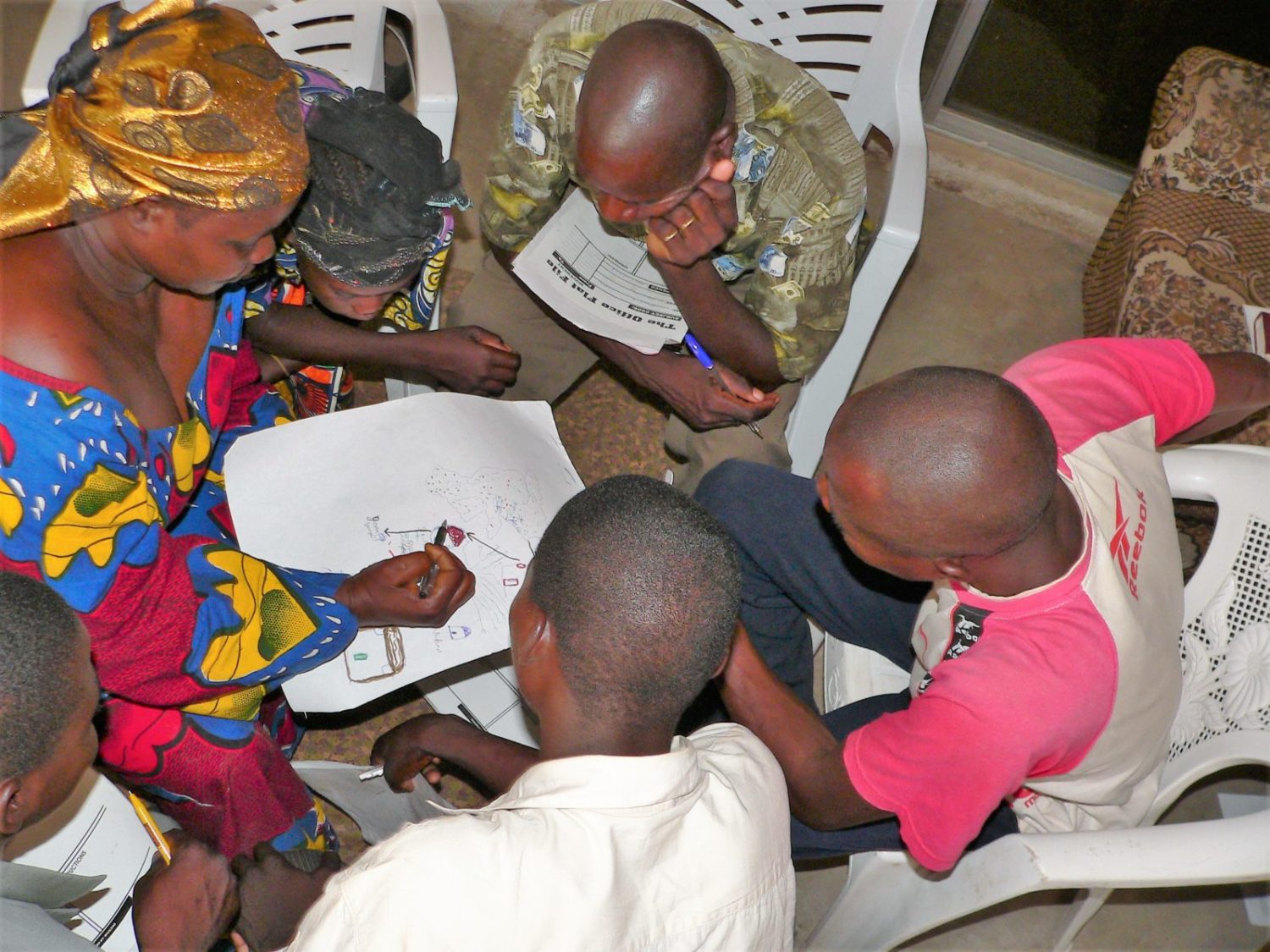They introduced me to the crowd. Camera’s flashed as I walked up to the stage to speak. “We now welcome ‘Rev. Dr. C. Anderson!,’” the MC announced with enthusiasm. The crowd’s applause was loud and vibrant. I didn’t know what to think. I was an ordained minister, so the Rev. title fit. I definitely didn’t have a doctorate degree yet. To honor me, they’d given me an extra title. With the goal in my heart of launching Disciple Making Movements, would the title help? Or, could it prevent me from training people to be disciple makers?
In my flesh, it felt good to have all those people cheering for me. Something inside didn’t feel right about it though.
In that situation, I didn’t have control over what had happened. Never had I told them that was my title, or asked for it to be used. What I could do though, was be humble and honest enough to correct the record with the MC. I could tell him how I’d like to be introduced in the coming sessions.
Culture Issues and Titles
In many parts of the world, titles are important. They are used to designate who you are. They are used to show respect.
Having the title of Dr. or Rev. in front of your name means you get to sit at special tables. You receive better than normal treatment. While this is not necessarily wrong or sinful, it does promote the opposite of what we want to see in DMMs.
In a movement, we must actively communicate the understanding that all believers are qualified to do the work of the ministry. Every Jesus follower has been given the same authority by Jesus to do the work of the ministry. We are all royal priests.
Using titles goes in the opposite direction of what we want to see in a movement. In light of this, most DMM trainers do not use titles in front of their names. Try to remove barriers between clergy and laity. Those wanting to start DMMs need to emphasize the priesthood of all believers in a consistent way. Using titles sends mixed messages to those we are training.
They Called Me Pastor, Then Doctor
He grew up in a poor family. Smart and talented, he did well in school. His stature was short, but his charismatic fun personality made up for it. In his late teens, he came to know Jesus as His Savior and was filled with the Holy Spirit. Joining a mission agency, he went from village to village sharing the gospel with boldness.
Eventually, he married and pioneered a church in his city. As was normal there, he was given the title “Pastor.” When people spoke to him now, they addressed him as Pastor _________. It made him feel good to be seen as special. He was a spiritual leader in their lives.
He went to meetings in his city where other pastors gathered. These titles seemed important there. What would it take for him to become a Reverend? Or even a Dr.? Taking a correspondence course, he studied theology. He also began to travel to different countries to speak. The Holy Spirit was moving through him. Miracles were happening.
A Bible college in a foreign country gave him an honorary doctorate from their institution. He began to introduce himself as Rev. Dr. _____________.
He then began to learn about Disciple Making Movements. This vision gripped his heart. Actively and intentionally this pastor began to equip and train every believer in his church to be a disciple maker. They too could do the work of the ministry. As he did that, things began to grow and multiply.
What should he do about the titles he had used previously? Were they helpful? Or would they hurt the movement?
“Beware of the teachers of the law. They like to walk around in flowing robes and love to be greeted with respect in the marketplaces and have the most important seats in the synagogues and the places of honor at banquets.”
Luke 20:46 NIV.
Why Titles Hurt a Movement
1. They communicate the opposite of the priesthood of all believers
This is worth repeating. The understanding of the priesthood of all believers is vital to seeing multiplication. This is why you must do everything possible to emphasize this idea consistently.
It is not worth giving this up in order to feel honored as a leader.
In many cultures, it goes against the norm to not use a title. Titles are common in Asian and African countries. We like to call people teacher or doctor. These things were culturally normal in Jesus’ time as well. When He addressed this, He was being very counter-cultural.
“You call me Rabbi…” Jesus said. We never see Jesus calling himself Rabbi (the Jewish word for Teacher). Paul was highly qualified and educated. We don’t see him calling himself Apostle Paul.
He recognized his gifting and role as an apostle and was confident in that. He starts his letters, “Paul, an apostle of Jesus Christ…” This is different from a title. It’s like me saying, “C. Anderson, a DMM trainer and coach…” instead of calling myself The Most Excellent Coach Anderson.
We don’t need to hesitate about sharing what we do. We might say, “I am a missionary. I am a pastor. I am a church planter, or I am a disciple maker.” That is different from calling yourself by a title.
2. Titles can lead to spiritual pride.
Be careful of pride in your role or position. If removing it makes you feel less worthy, you have a problem. Take note. You are in danger of pride related to this title. Repent and ask for God’s help.
3. Feelings of entitlement and privilege can be tied to our titles.
We are all the same at the foot of the cross, sinners saved by His grace. Our worthiness comes from God alone. We deserve nothing but what we’ve been given by God. It’s all His goodness.
Somehow, though, when we are given titles, we begin to expect special treatment. Honor and respect starts to feel natural. It can become something we take for granted. We can feel offended when we aren’t given it.
This is not healthy for us as spiritual leaders! Instead of servant leadership, we expect to be honored and respected by those we serve. This is dangerous and won’t lead toward a movement.
4. Our identity needs to be in sonship, not external ministry qualifications.
Our background may be poor or simple. Perhaps God has raised us up and given us more than what our parents had in terms of education, knowledge, or material blessings. Guard against feelings of shame regarding your backgrounds. Using a title is not an effective way of overcoming shame.
Our worthiness comes from the simple fact that we are His son or daughter. Not our title, not our education, not our wealth…no, these things are not what makes us worthy.
Making Changes
I hope you will consider carefully the use of titles like “Pastor Tom”, “Missionary Judy”, or “Rev. Rajendra”. In the New Testament, a simple “brother” or “sister” was enough of a designation. We are all part of the family of God. If in your culture, a title is needed, maybe a more family-related one will suffice.
Last note on this. I’m very, very cautious about allowing anyone to call me Mama C.
When we let people call us by the title of mother or father, it can unintentionally communicate that we are taking responsibility for their welfare. This isn’t positive. In a movement, we want every disciple to not only stand on their own feet, but grow strong enough to reproduce.
What is it like in your context? What questions does this article raise in your mind? I’d love to hear about it in the comments or on the DMMs Frontier Missions Facebook page.
1st Generation Skills

Get a free checklist of Skills needed for first generation disciples/trainees to move forward. Assess these skills and see faithful disciples turn into fruitful disciples.




Comments
This blog reminds me of an incident I lived and my relationship with the person became cold. I met this person when I was really down in my Christian life, asking myself so many questions. Sometime after, I went to teach in a neighbouring country but we kept chatting. He encouraged me to fast pray etc. In one of the fasts, our prayer time came when I was still busy so I wrote to him saying, bro, I’m sorry I can’t make it now…. The fact that I called him bro spoiled everything. He told me I wasn’t giving him the honour due to him and that’s why I couldn’t receive much from his anointing. I tried to explain but he didn’t really listen. From that moment, we never really prayed together again or have any serious chats. I asked myself if I was wrong and tried to go by his titles but didn’t feel comfortable about it.
Author
Im so sorry to hear that happened. Grace dear one!